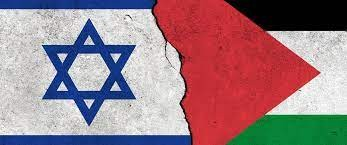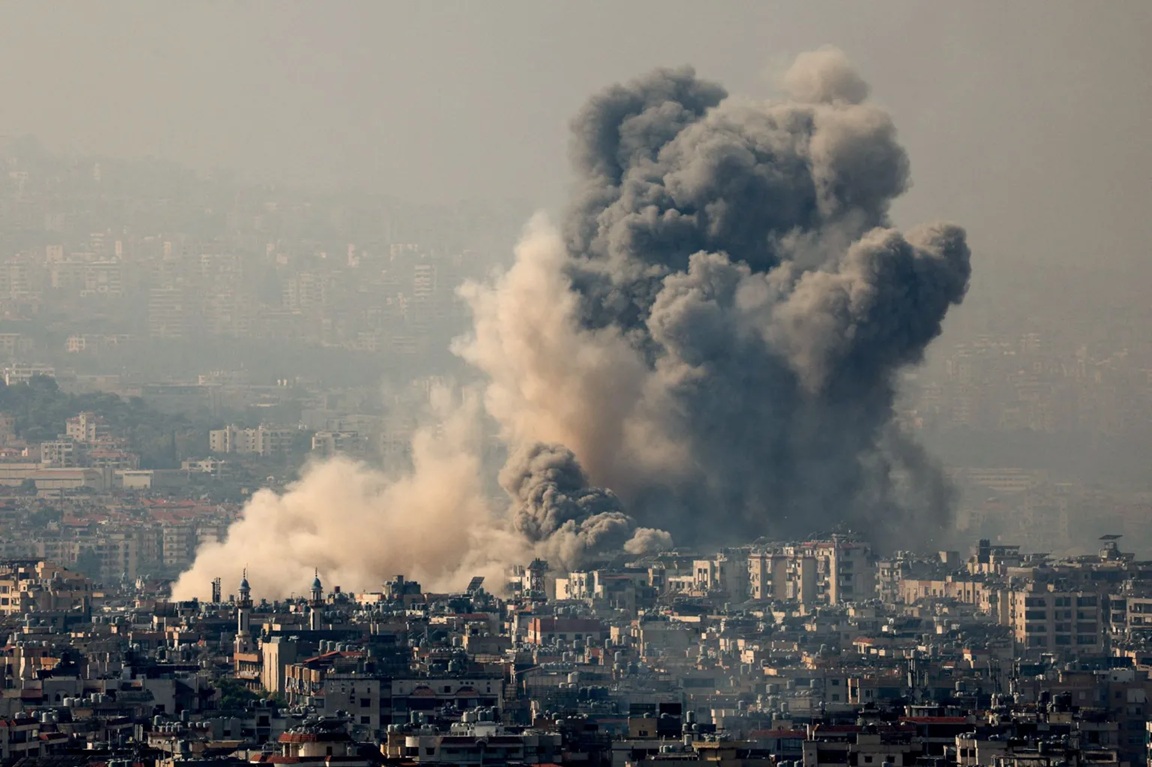
Salaam in Arabic and Shalom in Hebrew both sound similar. Still, the linguistic correlation is far from the reality of the word with the same meaning. What does peace mean, and has the Middle East ever been close to obtaining it? Many have questioned why a tiny proportion of the Levantine is so problematic, but the answer lies in the pride of not letting Jews have whatever has always belonged to them since Biblical times.
By Farid Shukurlu
The Bible says, “Pray for the peace of Jerusalem” (Psalm 122:6). Pray for the city of peace, which is located in modern-day Israel. But has it ever seen any? The answer can vary, but one thing remains the same and has set millennials apart from hardship.
Since 1948, there has never been lasting peace in the Middle East due to a single factor: rejectionism. The UN Partition Plan, also known as Resolution 181, recommended dividing the British Mandate of Palestine into two states, one Jewish and one Arab. The plan also called for Jerusalem to be administered by the UN for 10 years. While it was not legally binding and far from ideal for Jews, it was still accepted.
The Arab population of Palestine and the Arab States rejected the plan. The Arab League, the Arab Higher Committee, and other Arab leaders and governments argued that the plan violated the UN Charter's principles of national self-determination. They intended to take all necessary measures to prevent the plan's implementation, and soon after, declared on new Jewish immigrants, aspiring to drive them to the depths of the Mediterranean Sea.
A newborn nation of Holocaust survivors and, soon after, Mizrahi migrants prevailed despite all the odds. The local Jewry were massacred and desecrated in their synagogues and cemeteries. Still, they managed to rebel and establish the world’s only Jewish State under the idea of a homeland for people who had just survived the worst atrocity in human history. The local Jewish militia groups, such as the Lehi, Haganah, and Irgun, were successful, and they later merged to form what is known as the Israel Defence Forces.
The Arab rejectionism did not end with Israel’s victory; they kept on arming and seeking the extermination of the Jewish people from their lands. Various battles were fought, and the Khartoum Resolution was issued to oppose any negotiation or agreement with Israel. In the resolution, the Palestine Liberation Organisation (PLO) advocated against acceptance of Israel's right to exist, as articulated in United Nations Security Council Resolution 242.
Jerusalem was divided during the first 20 years of Israel's existence. Israel controlled the Western portions, while Jordan controlled East Jerusalem. After the 1967 Six-Day War, Israel seized all of Jerusalem. It was declared the country's capital city while the entire world watched.
“It takes a strong Israel to make peace with the Arab world”. It was and is a strong Israel to make peace with Egypt, Jordan, Morocco, UAE, Sudan, and soon with Saudi Arabia, which holds two holiest pilgrimage sites of all Muslims. Prime Minister Benjamin Netanyahu also has a vision of making peace with the Arab and Muslim nations as he believes if you make peace with 98 per cent of the Arab World, the remaining 2 per cent will eventually agree to make peace with Israel as well.
As of the late 1980s, the Jewish State tried to make peace and fulfilled its obligation as a political entity to engage in multilateral agreements. It sent a rescue team to Türkiye when the devastating earthquake happened and helped the US rebuild entire wiped-off cities when a hurricane hit.
Despite this, it has not yet made peace with the Palestinians; the most dominant reason is due to the Palestinian mindset. The hatred for the Jews has placed them amongst the world’s poorest people and left them stateless. Former prime ministers the late Yitzhak Rabin and Ehud Barak extended the olive branch to Arafat, an Egyptian-born product of the Muslim Brotherhood movement and an opportunist.
His rejectionism of a two-state solution, which would grant Palestinians a nation-state covering 96 per cent of Judea and Samaria with East Jerusalem as its capital, is what castrated the wings of the white dove.
It is easy to create the perfect condition for peace, but what is hard is to protect it. As time passes, the entire globe alters the dynamics of individualism and nation-states, and Palestinians are still set to be stateless. They indeed want peace, but they do not want peace with Israel, and they want a state, but they do not want a state next to Israel, but on the ruins of the Oasis the Israelis have built since 1948.
If they wanted peace with Israel, Arafat would not have called for an intifada that only brought more venomous chaos to innocent Israelis who were and are optimistic about the peace process. Bill Clinton realised that and described himself as a colossal failure because Arafat made him one.
Arafat and current President Mahmoud Abbas led two lives of deceit and corruption, splashing the funds provided by the international community left and right. At the same time, their people had to cross checkpoints to go to work in Israel to provide for their families.
This is what led to the resignation of their moderate PLO party members like Hanan Ashrawi and Mohammad Shtayyeh, who could not tolerate what PLO and their puppets did to impoverish their very own people with their anti-Jew and anti-Israel propaganda. It is due to rising tensions between Abbas and his corrupted way of governing the Arab population of Judea and Samaria.
On the other hand, already radicalised Palestinians elected Hamas after Israel pulled out of Gaza in 2005, dislocating many Jews from the strip. Who committed the most horrendous terrorist attack after September 11 that paralysed the entire peace process and gave a reality check to everyone who understands geopolitics and is human at heart.
The Iranian-backed terrorist group raped, beheaded and burned innocent people alive on October 7. Israel’s response to rescue their hostages and destroy Hamas and other Iranian proxies saw the destabilisation of the entire Middle East. Israel’s military dominance eliminated the heads of Hamas and Hezbollah while making political gains in Syria by neutralising more than 80 per cent of the country’s air defence system. However, the paramount objective of the war, which is to bring 100 hostages home, remains on the shoulders of the Israeli War Cabinet.
Israel cannot risk allowing the establishment of a Palestinian state that may seek its destruction, especially given the presence of Palestinians in Judea and Samaria who support Hamas and terrorism. Historically, there has never been a Palestinian Arab nation.
The Palestinian identity is seen as a product of Egyptian ultranationalism. Israel has learned that vacuums in territories like Gaza and the West Bank led to radicalisation and terrorism. Therefore, Israel must control these areas to prevent further violence and to work towards de-militarising and de-radicalising regions like Gaza, Nablus, Ramallah, and Jenin.







Very accurate and precise analysis of this conflict.
A three state solution would be best with the arab states in the driving seat